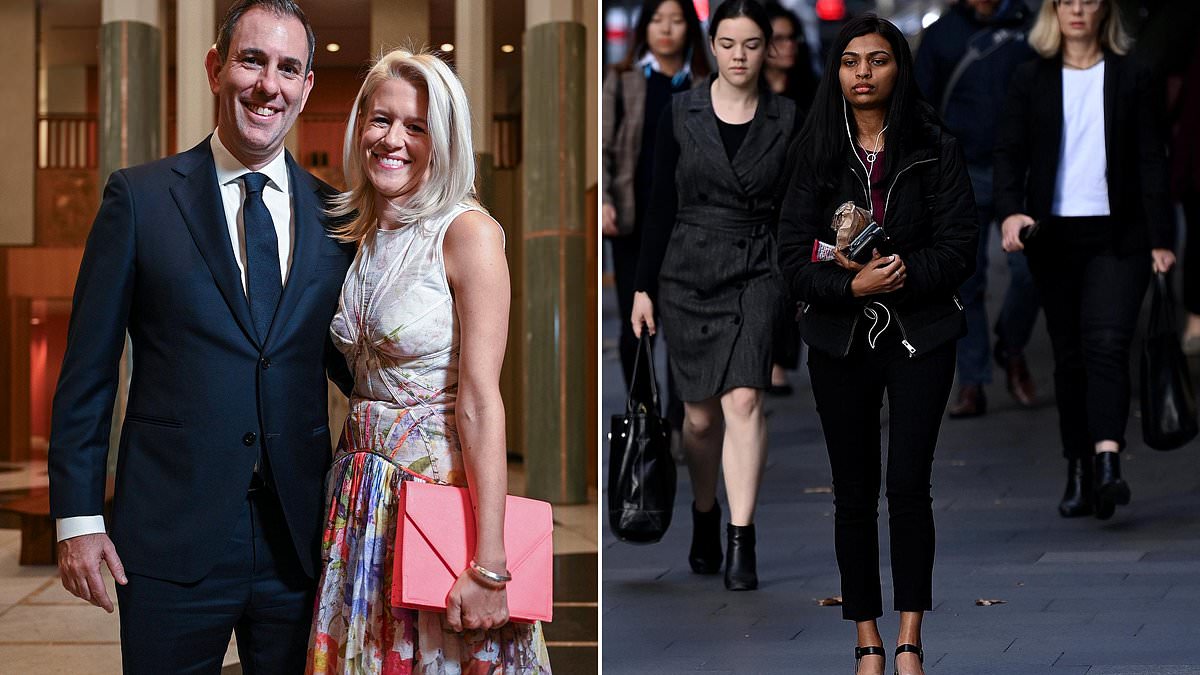Copyright dailymail

The inflation genie isn't just out of the bottle again - she has kicked the cork across the room! So what happens next? For context, we first need to take a quick look at the terrible economic news coming for us. The picture for the coming few years looks bleak. Australia's latest inflation numbers are disastrous and well above what was expected. Headline CPI jumped 1.3 per cent in the September quarter, taking annual inflation back up to 3.2 per cent. More worryingly for the Reserve Bank, the trimmed mean (the bit that strips out the noise) rose a full one per cent in the quarter and three per cent over the year - the first upswing in core inflation in three years. Pair all of that with unemployment rising to 4.5 per cent in September and you get the very thing central bankers dread most: price pressures returning just as the labour market softens. Whatever hope borrowers had for a Melbourne Cup interest rate cut is now glue on the track. In fact, there is probably more chance of rates going up next time, rather than down, unless the economy crashes to the point where the RBA is forced to reluctantly cut rates to save jobs and growth despite high inflation. That, by the way, is becoming increasingly likely unless Labor gets serious about reforming the economy. So mortgage-holders will remain under the pump and will be forced to sell their homes if they lose their jobs while unemployment ticks up. Renters will cop another round of pain as housing costs climbed 2.5 per cent in the quarter, with the pipeline of new supply still choked by planning delays and building cost spikes. Labor has no chance of meeting its pledge of 1.2million new homes. For a typical household budget, this all means the monthly spreadsheet gets ugly - and fast. On a $600,000 variable mortgage, every 0.25 percentage point move is roughly $125 a month. Hold rates where they are and there's no relief, nudge them higher and you're staring at a few hundred extra dollars a month when people are already struggling. So buffers get eaten up and emergency savings shrink. The nice-to-haves (such as streaming and take-away) are the first to go. Forget about holidays or eating out. Power bills, already higher from July 1, keep chewing through pay packets, and we've been told prices will keep going up in these inflationary times. Over the last year electricity prices have shot up more than 30 per cent already. If you seriously think you can decouple such price rises from the government's move towards net zero emissions then more fool you. Food inflation was 3.1 per cent over the last year, meaning that basic purchases such as bread and milk are on the rise. Translating the inflation jargon into the costs felt in the supermarket, at the petrol pump and paying bills highlights the real world consequences of governments mismanaging the economy. The weekly shop feels permanently dearer, because it is. Staple prices never snap back once they ratchet up. Fuel is volatile enough that a long commute can blow the fortnightly budget. Electricity bills are being set higher even as rebates fade, so using less power is the only sure lever. Enjoy that as the summer months fast approach, all the while being lectured by the PM and Energy Minister Chris Bowen that climate change is causing the heat waves. Insurance premiums, strata fees and council rates have been drifting up too, which quietly crowds out school costs, kids' activities and health appointments. If unemployment ticks higher from here, many households will shift from stretching the budget to cutting: delayed car services, dropping insurances and crossing one's fingers, dipping into redraw accounts and credit cards to bridge the gap. This is all because the arithmetic of rising prices plus a softening jobs market only points one way for disposable income: It vanishes. That's the household ledger. The macro-economic ledger is worse. With unemployment drifting up and core prices re-accelerating, we're flirting with the stagflationary edge. Shadow finance minister James Paterson alluded to this risk on Sky News today. Wages are barely keeping the noses of ordinary Australians above water when you consider the last two years in which real incomes have been smashed relative to inflation. And now inflation is again marching north - with a shrug of the shoulders from the Treasurer. The RBA keeps warning that productivity hasn't recovered from the pandemic dip, and unit labour costs are still unhelpful. If productivity doesn't lift soon, today's wage gains simply push tomorrow's prices even higher. Jim Chalmers is a clever enough political operator, but he's governing in a rut of his own making. The government's instinct has been political management over economic reform. Structural spending pressures are marching on. The Parliamentary Budget Office has already flagged that the budget's medium-term expenses are probably understated by up to 1.5 per cent of GDP. In other words, things are worse than the projections already present them as being. When you insist the budget is 'in good nick', as Jim keeps telling us, while the long-term spending base swells, you're not really managing the economy. You're just managing the spin. Worse, the policy mix that has been legislated is actively crimping the private sector engine that could otherwise help get us out of this mess. Industrial relations changes under Secure Jobs, Better Pay and the Closing Loopholes packages have expanded multi-employer bargaining, rewritten the meaning of casual work and handed the Fair Work Commission new powers to set minimum standards for workers. You can make a social case for each reform, certainly. But you can't pretend they come free of consequences. Compliance costs, bargaining complexity and the risk of regulated floors turning into de facto ceilings on flexibility all land in the same place: fewer expansions, slower hiring, less investment at the margins. In a tight, low-growth economy, that's a problem. Energy policy is similarly vexed. Rebates cushioned bills and, conveniently for Labor, suppressed the measured inflation figures last year. Now those effects are rolling off while default prices have been reset higher. The Treasurer's defenders say real wages are finally positive, inflation is half what it once was, and the RBA judged conditions soft enough to cut the cash rate earlier in the year. The answer to all of that is: so what! It is different when the wind turns against you. The latest numbers have taken a bat to any near term interest rate easing cycle. The risk isn't just that rates stay up for longer, it's that higher for longer rates collide with a weakening jobs market and a productivity slump to produce a slow bleed recession you only recognise when the tax receipts fade and the underemployment rate tells the real truth about what's going on. High rates of immigration are the only thing that will stave off a technical recession, unless Chalmers finds it within himself to fix the budget and reform the economy. People have been doing it tough for years now, but the latest inflation numbers - coupled with rising unemployment and slow economic growth - strongly suggest that life will get harder for most Australians long before it gets better.



